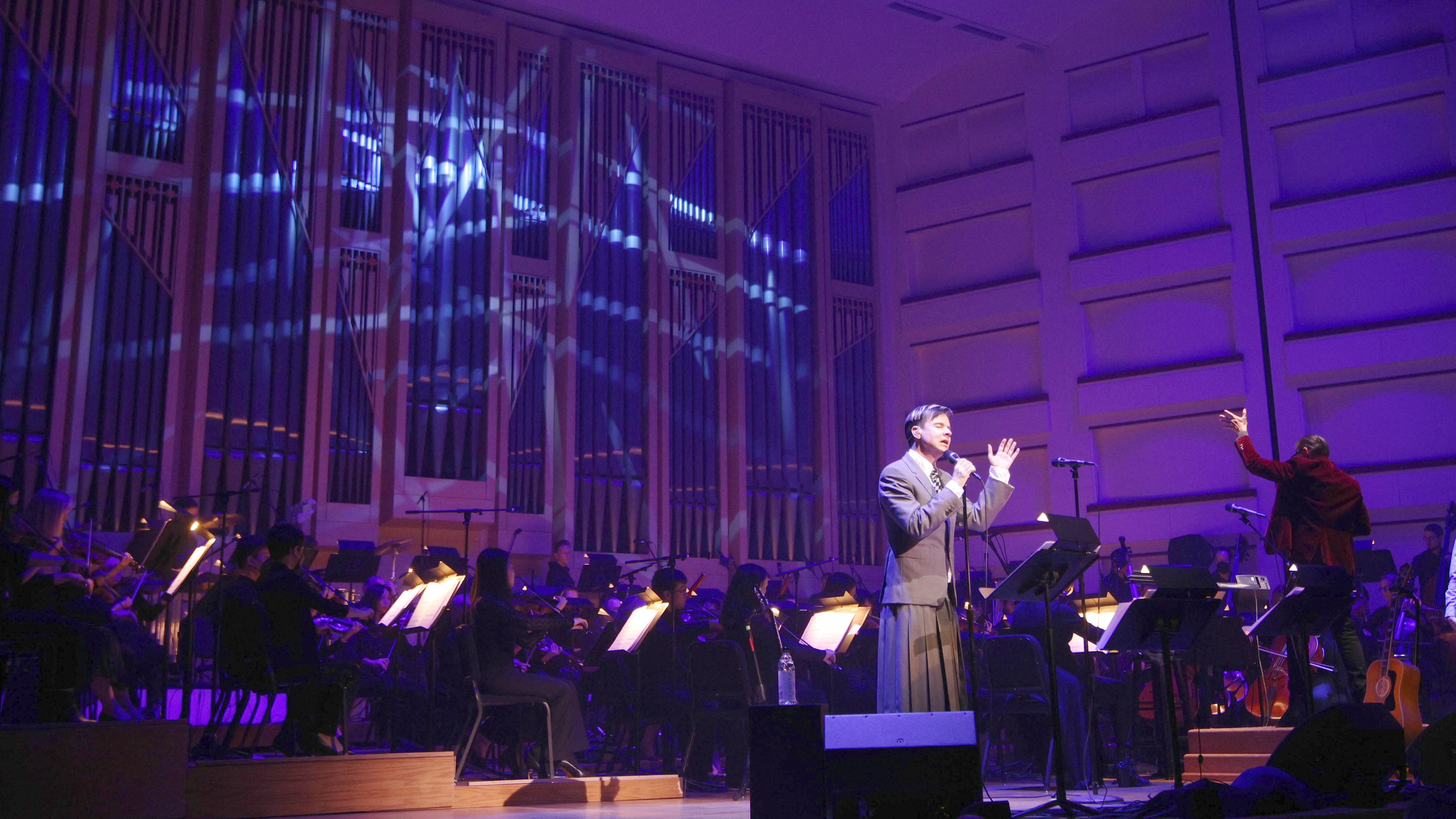John Cameron Mitchell was 10 years old when David Bowie rewired his brain. Like for millions of other kids in the early ‘70s, Mitchell’s conception of what rock performance could be was significantly expanded by Bowie’s early-’70s Top of the Pops appearances, which still look like transmissions from outer space half a century later.
Even in the eccentric world of Britain’s 1970s glam-rock zeitgeist, Bowie was obviously something else entirely. “It scared the hell outta me,” Mitchell tells WW. “It wasn’t schtick like some of the other glam-rockers. He seemed to be serious.”
Bowie has played a big part in Mitchell’s career, not least as inspiration for his best-known work, the 1998 stage musical Hedwig and the Angry Inch. Steeped in androgynous ‘70s imagery and German cabaret decadence, Hedwig got the spirit of the glam-rock era so right that Bowie himself co-produced the Los Angeles stage production.
It’s appropriate that Bowie collaborator Donny McCaslin would invite Mitchell to join Blackstar Symphony, a tribute to one of Bowie’s most monumental works—his final album Blackstar, released in 2016 days before his death at age 69.
Blackstar Symphony has performed sporadically since 2022, and its West Coast premiere will take place at Portland’s Arlene Schnitzer Concert Hall on Feb. 22. Artistic director McCaslin, bassist Tim Lefebvre, and keyboardist Jason Lindner all played on Blackstar, and Mitchell is joined on vocals by longtime Bowie backing vocalist Gail Ann Dorsey. This formidable cast will be joined by the Oregon Symphony, conducted by Tim Davies.
Mitchell is slated to sing the three closing tracks on Blackstar—”Girl Loves Me,” “Dollar Days” and “I Can’t Give Everything Away”—along with a few interpretations of Bowie’s better-known (and less emotionally devastating) songs at the end of the set.
“The first time we did it, Gail Ann and Donny got very emotional,” Mitchell says. “But I love that it’s something that we can do once in a while. It won’t burn itself out.”
The songs on Blackstar are light-years removed from the glam-rock theatrics immortalized in Hedwig, featuring eerie pitch-shifted vocals and rhythms that split the difference between jazz and the more frenetic end of U.K. dance music. It’s hard to think of a more fascinating, challenging and experimental album made by a rock musician 50 years into their career.
Bowie remained a voracious consumer of new styles of music until the end of his career, citing ambient electronic duo Boards of Canada, hip-hop artists Death Grips and Kendrick Lamar, and reclusive funk auteur D’Angelo as inspiration for the dark, groove-heavy tenor of Blackstar.
“He was always exploring,” Mitchell says. “He was always interested in supporting new bands.”
It’s difficult to think of an artist who reinvented themselves as successfully and as many times as Bowie, who began as a folkie in the ‘60s before stepping into the platform boots of glam rock—then experimented with soul, dance music, dystopian industrial soundscapes, and the arena-friendly pop rock that scored him massive hits like “Let’s Dance” and “Under Pressure.”
Mitchell cites Bowie’s musical eclecticism as the reason these songs work so well within the checkered continuum of rock bands collaborating with orchestras. “Sometimes in the classical world they don’t quite get the other worlds—but Bowie straddled so many worlds,” he says.
Bowie knew he was dying of liver cancer when he recorded Blackstar, though this fact was never disclosed to the public. Audiences had two days to hear Blackstar before he passed, and though many critics turned in their reviews (almost all of them raves) while Bowie was still alive, it subsequently became impossible to hear the seven songs on Blackstar as anything but Bowie’s farewells—least of all with lyrics like “Look up here, I’m in heaven,” from “Lazarus.”
“He died the way he lived, which was through a gesture,” Mitchell says. “A beautiful gesture at the end.”
SEE IT: Blackstar Symphony plays at the Arlene Schnitzer Concert Hall, 1037 SW Broadway, 503-248-4335, orsymphony.org. 7:30 pm Thursday, Feb. 22. $25–$85.
